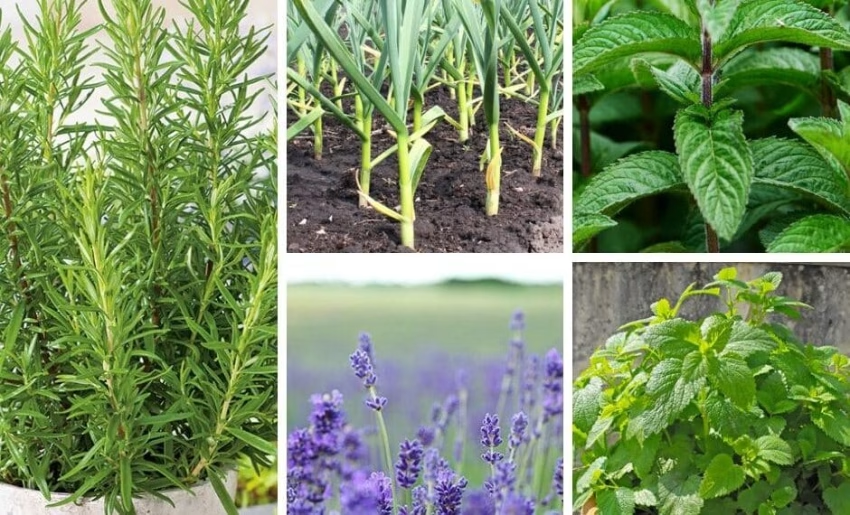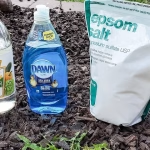Mosquitoes are more than just a nuisance—they can turn a relaxing evening in your garden into an itchy nightmare.
Worse still, some species carry harmful diseases like West Nile virus, Zika, and dengue fever. While commercial insect repellents are effective, they often contain chemicals like DEET, which many prefer to avoid.
The good news? Nature offers its own line of defense. There are a variety of plants with natural mosquito-repelling properties that can help protect your outdoor space while enhancing the beauty and biodiversity of your garden.
Many of these plants emit scents that mosquitoes find offensive, or they contain essential oils that are effective deterrents.
In this guide, we’ll explore 11 of the best mosquito-repelling plants to grow in your garden, how to use them for maximum effectiveness, and tips to create a natural pest-free outdoor oasis.
Why Plants Repel Mosquitoes
Mosquitoes rely heavily on their sense of smell to locate people and animals to bite. Certain plants naturally produce compounds like citronellal, geraniol, linalool, or thymol, which interfere with this ability.
When crushed, burned, or distilled into oils, these plants can disrupt mosquito scent receptors, keeping them at bay.
But you don’t have to process these plants to benefit—just growing them strategically around your garden can reduce mosquito activity, especially when combined with good mosquito management practices like removing standing water.
11 Best Plants That Repel Mosquitoes
1. Citronella Grass (Cymbopogon nardus or Cymbopogon winterianus)
Citronella is probably the most well-known mosquito-repelling plant, and it’s the main ingredient in many commercial bug sprays and candles.
-
How it works: Contains citronellal, which masks scents that attract mosquitoes.
-
How to grow: Warm climates, full sun, and well-draining soil.
-
Tip: Crush the leaves to release more of the essential oils. Plant it near sitting areas or doorways for best results.
Note: Citronella grass is different from citronella-scented geraniums.
2. Lavender (Lavandula spp.)
Beyond its relaxing aroma and gorgeous purple blooms, lavender is a natural mosquito deterrent.
-
How it works: Contains linalool and camphor, which mosquitoes avoid.
-
How to grow: Prefers full sun and dry, well-drained soil.
-
Bonus: Attracts pollinators while repelling unwanted pests like mosquitoes and moths.
Use dried lavender in sachets or hang near doors and windows for indoor benefits.
3. Marigolds (Tagetes spp.)
These bright flowers are more than just ornamental. Marigolds contain pyrethrum, a compound used in many insect repellents.
-
How it works: Pyrethrum affects mosquitoes’ nervous systems.
-
How to grow: Easy to grow in pots or borders; loves full sun.
-
Placement: Ideal around vegetable gardens and entryways to deter flying pests.
4. Basil (Ocimum basilicum)
A favorite culinary herb, basil is also a powerful mosquito repellent.
-
How it works: Releases aromatic oils that mosquitoes dislike, especially in warm weather.
-
How to grow: Requires full sun, rich soil, and regular watering.
-
Best varieties: Lemon basil and cinnamon basil offer additional repellent properties.
Keep pots of basil near patios or use crushed leaves to rub on exposed skin.
5. Lemon Balm (Melissa officinalis)
Part of the mint family, lemon balm has a citrus scent that mosquitoes hate.
-
How it works: High in citronellal and geraniol.
-
How to grow: Grows well in containers; can be invasive in the ground.
-
Usage: Crush leaves and apply to the skin for a mild natural repellent.
This calming herb also makes a great tea to help you wind down after a mosquito-free evening outdoors.
6. Peppermint (Mentha piperita)
Peppermint doesn’t just cool your drinks—it cools mosquito enthusiasm too.
-
How it works: Contains menthol, which mosquitoes avoid.
-
How to grow: Spreads quickly, so best grown in pots.
-
Other benefits: Repels ants and spiders as well.
Peppermint oil is also effective in DIY mosquito sprays.
7. Catnip (Nepeta cataria)
Catnip is beloved by felines and loathed by mosquitoes. Studies show that it can be more effective than DEET in some situations.
-
How it works: Contains nepetalactone, a strong mosquito repellent.
-
How to grow: Hardy and drought-tolerant; thrives in full sun.
-
Caution: May attract neighborhood cats!
Use leaves fresh or dried, or make your own catnip-infused repellent oil.
8. Rosemary (Rosmarinus officinalis)
Rosemary is a fragrant herb that’s effective at repelling a wide range of insects, including mosquitoes.
-
How it works: The scent confuses mosquitoes’ receptors.
-
How to grow: Full sun and well-drained soil. Great for pots or raised beds.
-
Tip: Throw sprigs into a fire pit or BBQ to release oils that keep bugs away.
9. Bee Balm (Monarda spp.)
Also called wild bergamot or horsemint, bee balm is a pollinator-friendly plant that doubles as a mosquito deterrent.
-
How it works: Contains thymol, an antiseptic and mosquito repellent.
-
How to grow: Prefers full sun and moist, well-drained soil.
-
Bonus: Attracts bees, butterflies, and hummingbirds.
10. Eucalyptus (Eucalyptus globulus)
Eucalyptus trees are known for their clean, sharp scent, which repels mosquitoes and other flying insects.
-
How it works: Contains eucalyptol (cineole), a known repellent.
-
How to grow: Needs full sun; best in large containers or warm climates.
-
Tip: You can also use eucalyptus essential oil in homemade sprays.
11. Scented Geranium (Pelargonium citrosum)
Often called “mosquito plant,” this citronella-scented geranium is popular in ornamental gardens.
-
How it works: Emits citronella-like compounds.
-
How to grow: Prefers warm temperatures, full sun, and regular watering.
-
Tip: Not as potent as true citronella grass, but great for container gardens and aesthetics.
How to Maximize the Mosquito-Repelling Power of These Plants
Simply planting these species won’t eliminate mosquitoes entirely, but with the right strategies, you can create a noticeably less buggy garden:
Group Plants Strategically
Cluster mosquito-repellent plants near doorways, patios, windows, sitting areas, and garden paths. Grouping intensifies their scent and creates an invisible barrier.
Use Containers for Portability
Potted plants like basil, rosemary, citronella, and mint are easy to move around and place where needed, especially during outdoor gatherings.
Activate the Scent
Mosquitoes respond most to the oils in these plants. Crush a few leaves or brush against the plants to release their aroma before spending time outdoors.
Combine with Water Management
Remove standing water from birdbaths, plant trays, and gutters to eliminate mosquito breeding grounds. Your repellent plants will be far more effective.
Make DIY Repellents
Use the essential oils of these plants in homemade sprays or lotions. Combine with a carrier oil (like coconut oil) and a few drops of eucalyptus, lavender, or peppermint oil for a natural, skin-safe repellent.
Mosquitoes don’t stand a chance when nature’s defenses are in full bloom.
Whether you’re cultivating a full herb garden, designing an outdoor living space, or just adding a few containers to your porch, these 11 plants will help you enjoy your yard without swatting away swarms.
By choosing the right plants and using them wisely, you’ll create a more comfortable, fragrant, and functional garden that naturally keeps mosquitoes at bay—no chemicals required.


